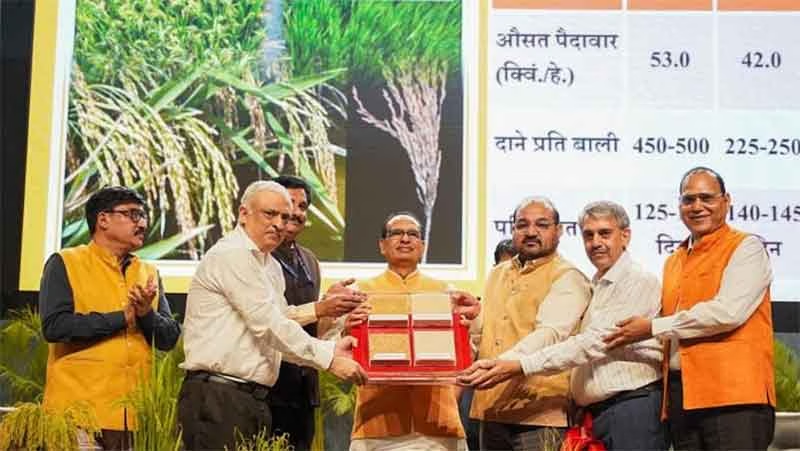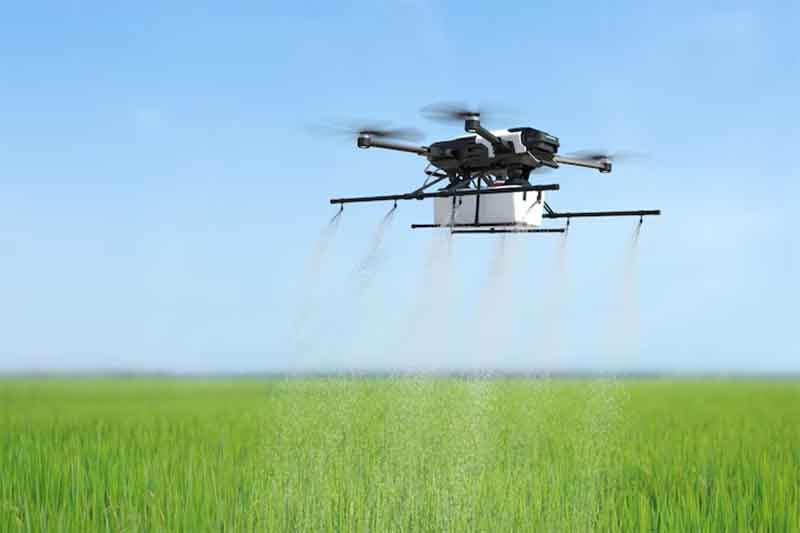
Industrial agriculture is not a system in crisis. It is a system in command. Engineered with precision, it reflects the civilisational logic of industrial modernity: domination over cooperation, profit over sufficiency, scale over ecology. It is not malfunctioning—it is functioning exactly as designed.
Across three volumes—Food, Dependency and Dispossession (2022), Sickening Profits (2023) and Power Play: The Future of Food (2024)—I have mapped this critique in layered terms. What emerges is not a sectoral failure but a planetary regime of dispossession: a machinery that converts ecological life into economic assets, undermines autonomy under the banner of development and metabolises resistance into market-friendly reform.
The food system is not broken. It is a weapon. And it is intended as such. It concentrates power, severs people from land, deskills and displaces producers and commodifies nourishment. It benefits financial capital and corporate actors while externalising its costs—to health, biodiversity, labour and culture.
In the Global South, ‘development’ is the velvet glove of structural dependency. It arrives cloaked in the language of poverty reduction and climate resilience—while deepening indebtedness, consolidating proprietary seed systems and subordinating food sovereignty to export-driven logic. For all its rhetoric and well-laundered PR, Bayer is not saving Indian agriculture. It is enclosing it.
Behind the slick brand messaging lies a familiar pattern. Corporate contracts replace commons. Proprietary inputs replace knowledge. The land is enclosed—not always by fences, but by code, debt and bureaucratic abstraction. This is not progress. It is programmed disempowerment. Weber’s ‘iron cage’ of rationalisation is no longer metaphor—it is agronomic policy, algorithmic governance and institutional capture.
Post-development theorists like Arturo Escobar and Gustavo Esteva have long exposed ‘progress’ as a colonial narrative—one that erases plurality and imposes a singular vision of modernity. Barrington Moore’s study of agrarian class structures illuminated a deeper truth: the fate of democracy and dictatorship often hinges on how land is owned, who controls surplus and which coalitions form around agricultural production.
Robert Brenner adds further ballast: capitalism doesn’t arise from innovation alone, but from the violent reordering of class and land relations. And Jason W Moore’s world-ecology perspective insists that nature isn’t a backdrop—it’s embedded in the very logic of accumulation. Progress, in this light, is not an upward arc—it’s a marketing campaign for dispossession.
Sickening Profits traces the links between major asset management firms—BlackRock, Vanguard, State Street—and the intersecting sectors of seed, chemical, food manufacturing and pharmaceuticals. These firms do not merely invest. They synchronise.
The result is a system where ultra-processed, chemically intensive food degrades health; pharmaceutical giants respond with treatments; and investment firms profit from both sides. Complicity is woven into this circuit through pension schemes and sovereign investment channels, tying the wellbeing of workers to the very structures of subordination that erode public health and ecological integrity.
This is not a bug. It is the system’s logic, rendered visible. As Marx warned in his theory of the metabolic rift, capitalism ruptures the organic exchange between humans and nature, degrading both soil and society in pursuit of surplus.
Power Play: The Future of Food explores how the next phase of agri-capitalism (arguably morphing into some kind of techno-feudalism) is digital. Precision farming, AI diagnostics, blockchain land registries, gene editing—these are not neutral tools. They are instruments of enclosure. They deskill farmers, centralise decision-making and consolidate control in proprietary platforms.
Ecomodernist fantasies promise that technology will decouple growth from harm. But these technologies entrench extractive dynamics, incentivise monoculture and transform farmers into data nodes. Technological intensification does not democratise the system—it de-democratises it.
Yet there are countercurrents. Bhaskar Save, the ‘Gandhi of Natural Farming’, showed that abundance need not come at the cost of integrity. His farm was not just productive—it was sacred. Like Gandhi, Save believed that true self-reliance begins with the soil. His methods were not merely agronomic—they were ethical, spiritual and political.
In Hind Swaraj (1909), Gandhi critiqued Western industrial civilisation as a ‘black magic’ that worships speed, machinery and consumption. His vision of swaraj—self-rule rooted in locality, restraint and interdependence—remains a radical alternative to the extractive logic of modernity.
The land is not a resource but a spiritual commons—a living matrix of memory, culture and identity, not Bayer’s digital fiefdom. To degrade the land is to sever a people from their cosmology. Resistance, then, is not just material—it is metaphysical.
And yet, this system is not only defended by corporations. It is legitimised by institutions. Certain well-funded departments or academics at the likes of Florida and Saskatchewan universities and Cornell’s Alliance for Science churn out industry-supported research that launders the talking points of Big Ag. Careerists in lab coats and lecture halls—comfortably embedded and institutionally insulated—serve as the intellectual wing of agri-capitalism. They do not study the system. They shield it, most notably from their social media pulpits—if not hourly then certainly daily.
The Diggers in 17th-century England, led by Gerrard Winstanley, understood that land is the basis of freedom. Their call to reclaim the commons was not symbolic—it was revolutionary. Today, their spirit lives on in every seed swap, every land occupation, every act of mutual aid that defies the logic of extraction. They understood that enclosure is the architecture of domination. To invoke the Diggers is to declare: we will not be tenants on a planet owned by capital.
Moreover, the logic of industrial agriculture does not stop at the soil. It continues inward—into the human body. The gut microbiome, the body’s internal soil, is degraded by ultra-processed foods, pesticide residues and pharmaceutical overuse. As external landscapes are homogenised for profit, so too are internal ecologies. This is not metaphorical colonisation. It is biochemical, political and intentional.
Power no longer governs only through territory and labour—it now operates through microbial environments, metabolically reproducing the conditions for chronic illness and chronic dependency.
Reclaiming food is not a matter of better policy. It is a matter of rupture. The industrial model cannot be reformed into justice. It must be confronted, disarmed and displaced.
But this is not just a politics of refusal. It is a politics of renewal.
Agroecology is not a niche alternative—it is a living practice of resistance and regeneration. It centres biodiversity, local knowledge and ecological reciprocity. It is not about scaling up—it is about rooting down.
Wendell Berry’s agrarianism reminds us that the health of culture and soil are inseparable. His call for affection, stewardship and place-based living is not nostalgia—it is insurgent wisdom.
Slow living, seed sovereignty, territorial autonomy—these are not lifestyle choices. They are counter-hegemonic acts. They interrupt capital flows. They assert values incompatible with the market logic of control.
And the Zapatistas? They remind us that autonomy is not a dream—it is a practice. In the highlands of Chiapas, they have built a living alternative: agroecological farming, communal governance and education rooted in dignity. Their call for “a world where many worlds fit” is not a slogan. It is a blueprint.
The dominant food system is not simply an outcome of contemporary power—it is its architecture. To dismantle it is not merely to fix food; it is to rupture the civilisational logic of industrial modernity itself. In this system, control masquerades as efficiency, dispossession hides behind the veil of development and the commodification of life is sold as progress.
Reclaiming food, then, is not a technical task—it is a civilisational reckoning. It demands the end of a worldview that sees land as property, humans as inputs and nature as capital. To dismantle the food system is to make space for another order. It is not merely an agricultural revolution—it is a revolution in how we live and relate.
Finally, this isn’t an academic paper or a corporate brief. There’s no funding behind it, no institution to answer to. Just a voice—clear-eyed, outside the fold and speaking because silence is not an option.
The authors three books referred to in the article can be accessed via Figshare.
Subscribe to Our Newsletter
Get the latest CounterCurrents updates delivered straight to your inbox.
Colin Todhunter is an independent researcher and writer.
















































